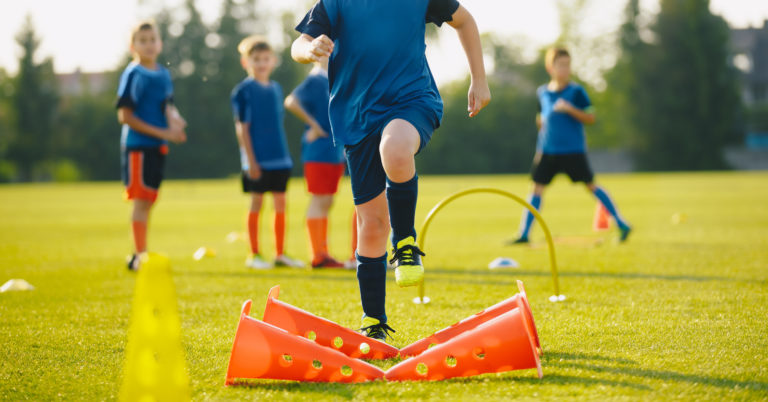Each year, National School Sports Week provides an opportunity for children up and down the country to get stuck into all things physical education (PE) and celebrate the many benefits that playing sports can offer, from improving physical and mental wellbeing to instilling positive values such as teamwork and resilience.
Started in 2008 by the Youth School Trust, the week sees hundreds of schools getting involved by holding sports competition days and activities which encourage children to have fun whilst getting active. This year, National School Sports Week will no doubt hold a special significance following the disruption and uncertainty of Covid-19.
Re-discovering a love for sport
The coronavirus pandemic has caused many of us to hit pause on things we enjoy and arguably used to take for granted, including socialising and playing sports with friends. A survey by Sport England found that the majority of children were unable to meet the recommended 60 minutes of physical activity a day during the 2019/2020 academic year due to the pandemic restrictions. However, many young people also found new sporty hobbies during lockdown, with the same report finding that 1.6 million children and young people went for a walk and 1.4 million more went for a bike ride for fun and fitness, compared to the same period 12 months ago.
With schools now reopened and life starting, cautiously, to open up again, it seems fitting that this year’s National School Sports Week theme is Together Again: celebrating the power of sport to bring people together. PE is a vital part of the curriculum because it teaches children a whole host of life skills, such as communication, working as part of a team, problem-solving, leadership and coping with winning and losing. Beyond the physical health benefits of playing sports, PE is a chance for children to get creative and do something they enjoy which is so important for their emotional wellbeing.
Many studies have pointed to the power of sports in improving students’ ability to concentrate and even performing better academically in lessons and exams. As part of the renewed focus on physical activity this year to improve young people’s mental and physical health, the Government recently announced a £320 million investment in the PE and Sport Premium so that primary schools can invest in their PE teaching, and deliver greater quality lessons and sports opportunities for pupils.
Under the DfE’s guidance, school sports days and competitions can go ahead provided proper safety measures are in place. While school sports days might not look quite as ‘normal’ when compared with previous years, there are still lots of ways that schools and families can be creative and get involved, whether it’s a socially distanced egg and spoon race or a virtual dance competition. Schools can sign up at the Youth School Trust website to access free resources and find out about the activities taking place this week on the sports field and in the living room.
Teaching life skills through PE
As this year’s Euros has demonstrated, sports like football have a unique ability to unite people behind a shared vision and promote positive attitudes of camaraderie and friendship. As well as encouraging children to move their bodies this National School Sports Week, schools might also want to consider how sport can be a powerful teaching tool in the classroom. Incorporating stories about how sports are played around the world can be a great way to introduce children to different perspectives and teach them about complex themes such as diversity, inclusion and the value of supporting one another and celebrating others’ success. For example, Lyfta is an immersive learning platform which has created a range of virtual learning content ahead of the Euros, using real-life stories from children playing football in different countries. The story-based videos show students how children from countries like China and Palestine are engaging with football, and the key life lessons they’re learning along the way. Any schools looking to implement more sports into their curriculum can sign up for a free trial of Lyfta’s platform and its football-based content and resources.
As many of us look ahead in excitement towards the Tokyo Olympics 2020, it’s clear that a summer of sport might be just what children and young people need to support their emotional and physical wellbeing recovery post lockdowns.




